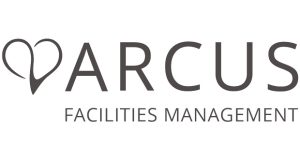Keith Chanter, CEO of EMCOR UK, explains to Sara Bean why a slow and steady strategy of organic growth has reaped healthy results for the facilities services company
The FM services market has seen a number of key players have their challenges over the past couple of years, resulting in a fall in confidence and trust in the very concept of outsourcing. EMCOR UK, however, has reported an impressive 21 per cent revenue growth year-on-year and a 16 per cent increase in operating profit with a healthy order book.
CEO Keith Chanter believes the company’s position of value over price has been the key to this success, enabling it to outperform many of its peers in the sector. It has not happened overnight – it’s been a gradual process since Chanter took up the CEO role from an accountancy background 12 years ago. It was, he recalls, an opportune moment to apply those skills.
“When I joined EMCOR UK it was a company that was spread across many divisions, including M&E. Underneath the bedrock of EMCOR UK is Drake & Scull, and most of their history was installing and maintaining M&E into buildings around the world – which afforded some very poor margins and some big losses.
“In 2007, when I joined, part of my agenda was to assess where that company was going from a financial point of view, and it was in pretty desperate straits. In 2008 the programme of change really started and we progressively started to reduce our exposure to the installation marketplace – which is a difficult market if you don’t invest in design and prefabrication capabilities.”
By 2013, when the firm decided to exit that marketplace, there was, admits Chanter, a real danger of throwing away all the core technical skills that the facilities market requires. But the firm opted instead to restructure in order to lay the foundations for its integrated FM business.
Says Chanter: “We went through some years of restructuring, managing within our own cash reserves, but as we sit today we remain profitable within a challenging environment, with £30 million-plus cash on the balance sheet, which for us is a large amount. We also have a very supportive parent in the background [US parent company EMCOR Group Inc, a Fortune 500 company, which has estimated 2019 revenues of $8.8-$8.9 billion].”
EMCOR UK’s rebirth has its roots in the downturn of the mid-noughties which still, argues Chanter, impacts the FM services market today. “During the 2008-9 period,” he says, “people went for the lowest cost provider – so when those renewals came back into the marketplace in 2013-14, there were a number of really dissatisfied customers. They’d gone into those contracts based on costs, and were unable to get what they really wanted in terms of services.
“We didn’t lower our standards or trade on a cost-only base, so instead of lowering costs we focused on developing a collaborative business relationship model and embedding it into our DNA in order to deliver value.”
TRAINING AND DEVELOPMENT
A key part of the strategy, he explains, was that earlier investment in people. “We rely primarily on our own internal workforce, who are enabled with the best technology, training and skills, which means we can offer a very developed career path that can take you from apprentice to the board. As well as developing key individuals into management positions, we’ve got a programme of operational courses which range from how to manage asbestos to managing people. These, of course, will include electrical and mechanical skills, but a growing piece is all around social skills.”
He continues: “We must recognise that our industry is not typically populated by white-collar workers, so we must give them the opportunity to progress professionally. In order to encourage personal development and growth, we provide them with relevant training that will allow them to develop their skills and prosper.
 “Our agenda is to retain talent and give them the opportunity to grow within their function. The social agenda is here to stay, and it’s one where we can make a difference as an industry leader. We’ve got a clear training pathway which shows how you can progress all the way through – for instance, a cleaning supervisor who has become a manager.”
“Our agenda is to retain talent and give them the opportunity to grow within their function. The social agenda is here to stay, and it’s one where we can make a difference as an industry leader. We’ve got a clear training pathway which shows how you can progress all the way through – for instance, a cleaning supervisor who has become a manager.”
Chanter believes strongly that this philosophy translates almost directly to how clients view their suppliers, and how they rate the quality of the people who come and deliver the services once a contract is signed. “My own value system tells me everyone is equal and the person who can influence a transaction can often be a receptionist.
“The reason I say this is that you can send in highly efficient business development people with the operational staff to do the pitch. But if the customer wants to test it, they might go to one of our customer sites – and the first people they see are our receptionists and security people who show them through. This is why FM should be all about fairness, inclusion and respect, and we try and champion that among all our people.”
Wellbeing goes hand in hand with people development, for, as Chanter acknowledges, an organisation may provide a fantastic building but a poor company culture can result in disengaged and unproductive people. The firm took the view that it needed to bring health, safety and wellbeing together more formally, so it appointed a director of health, safety and wellbeing. The appointee, Jonathan Gawthrop, has an MSc in behaviour change (health and wellbeing).
As Chanter explains: “From getting the basics right by ensuring safety and preventing accidents, the next stage is embedding a behavioural health, safety and wellbeing (HSW) culture. You can’t do that in a company unless you’ve an HSW programme that is consistent, from safety procedures and behaviours that are instinctively carried out to understanding, and supporting, a colleague’s physical and mental wellbeing – which is why we decided to bring all these facets together.”




